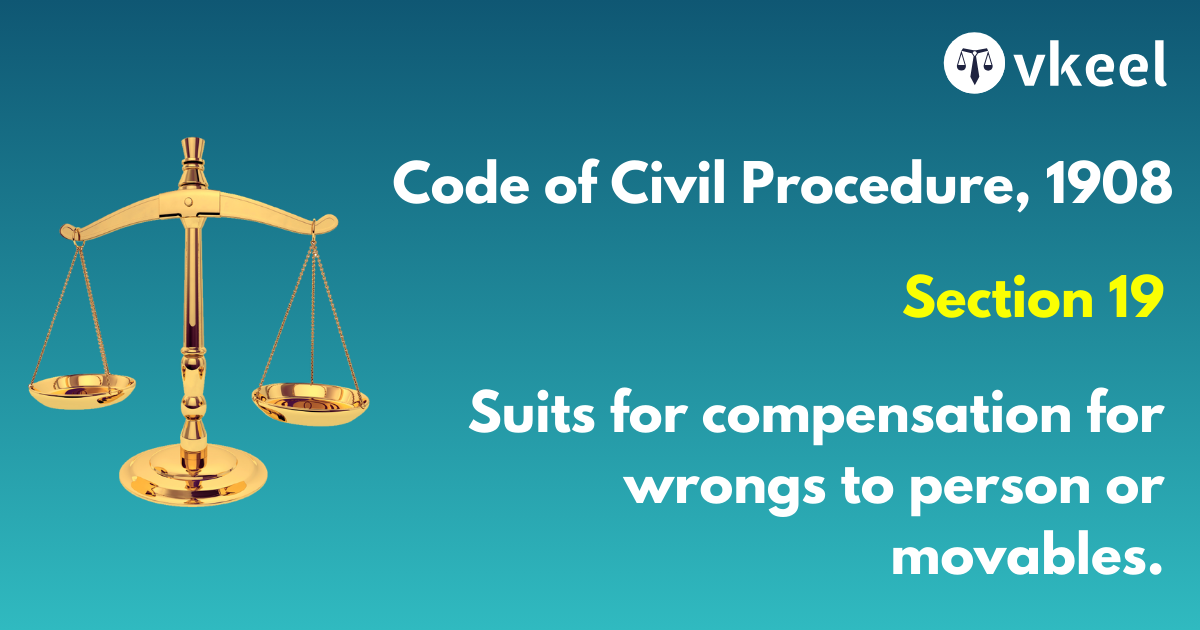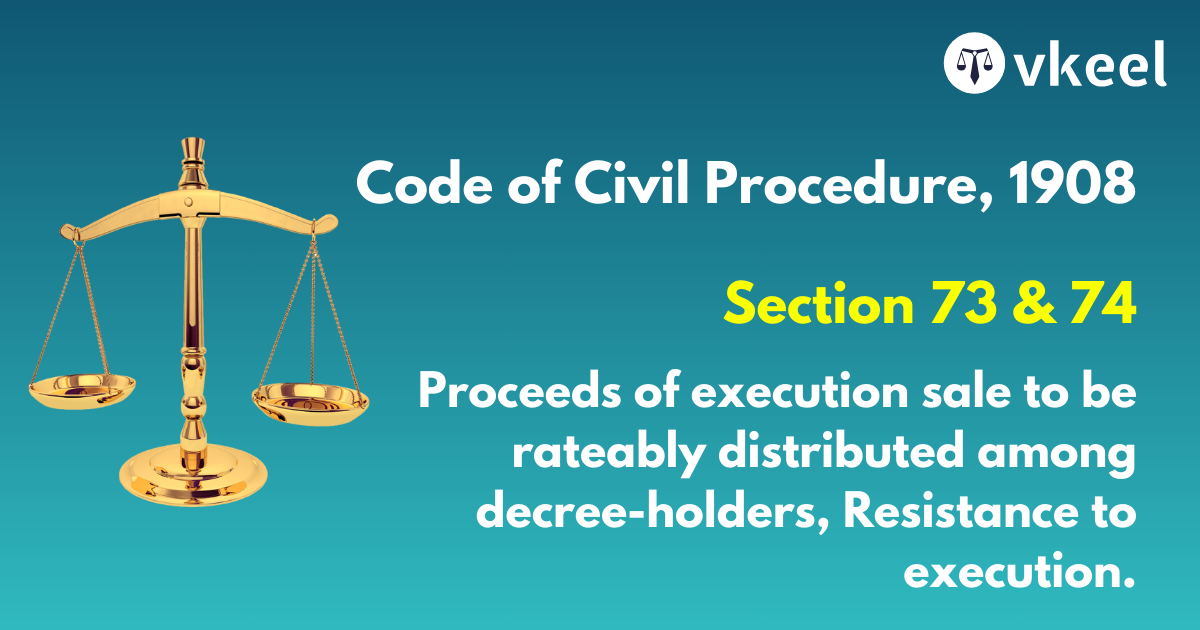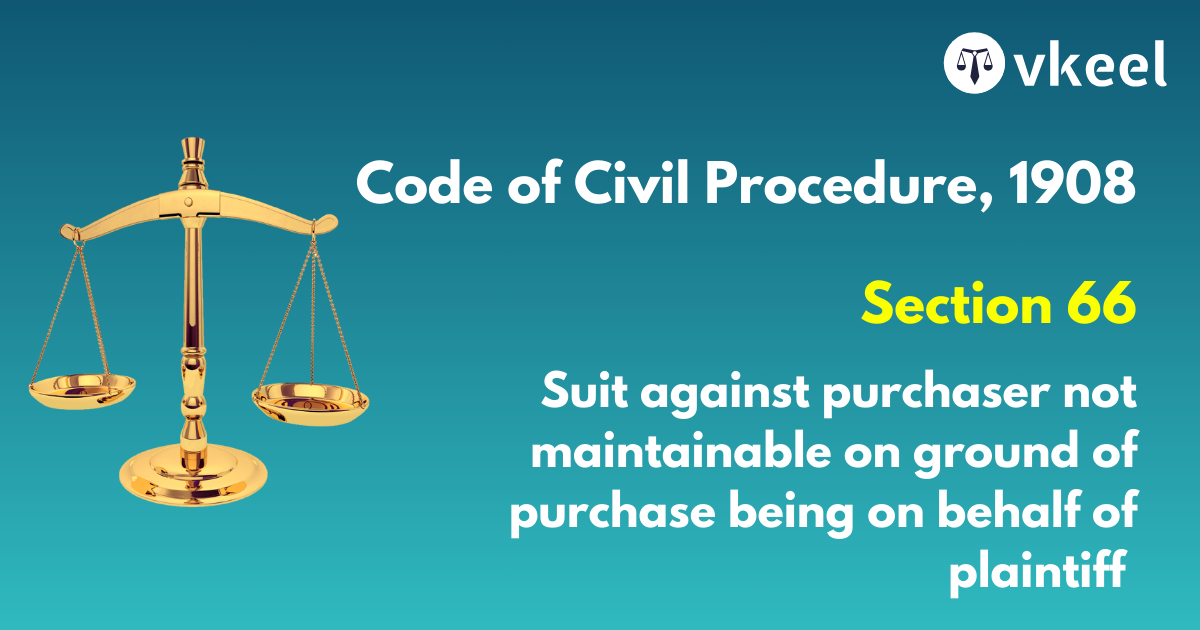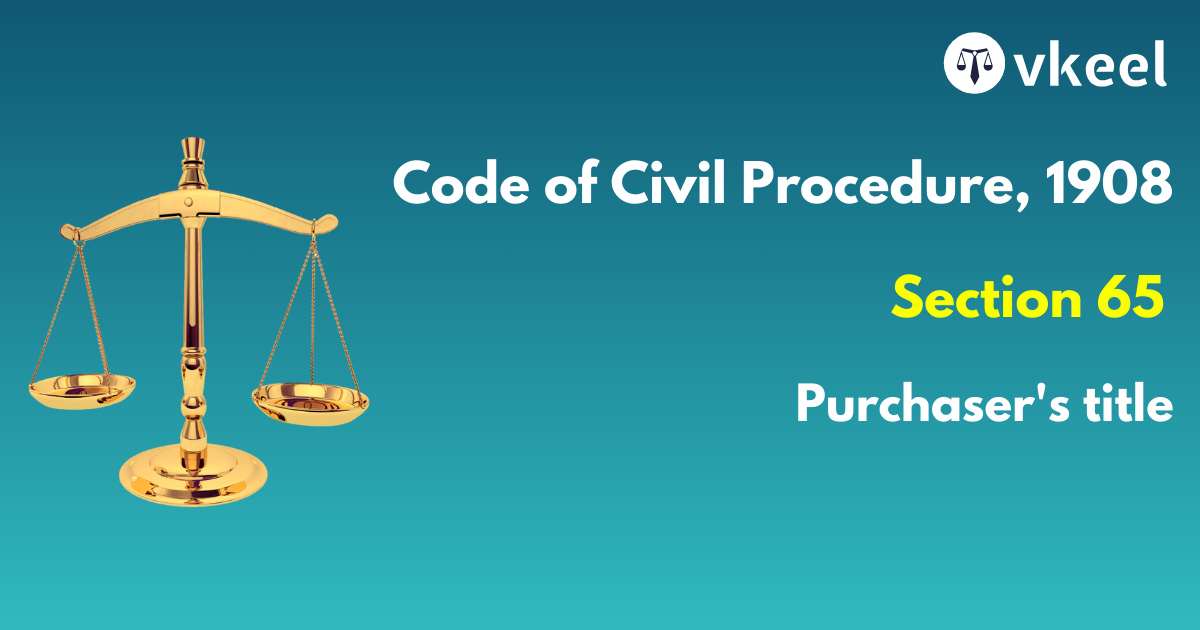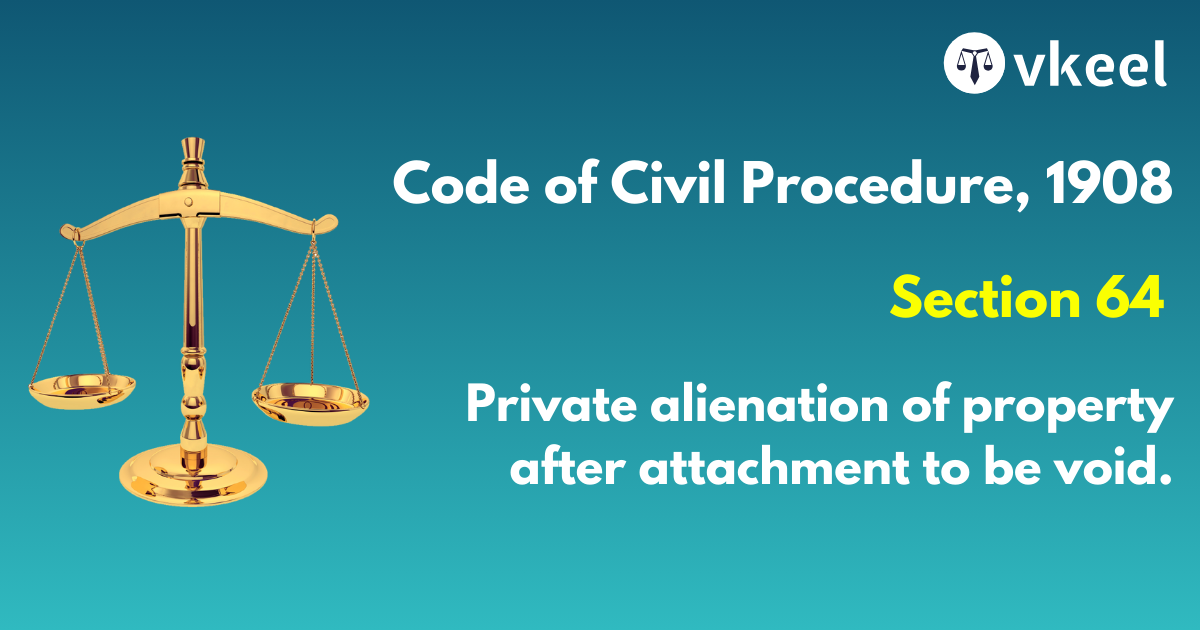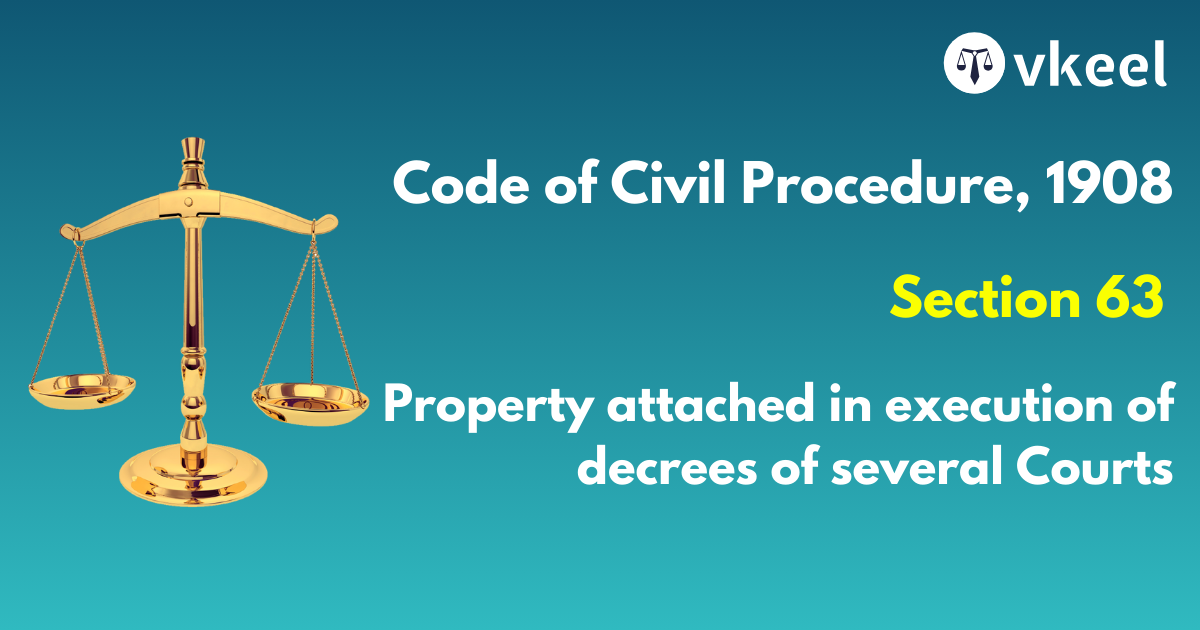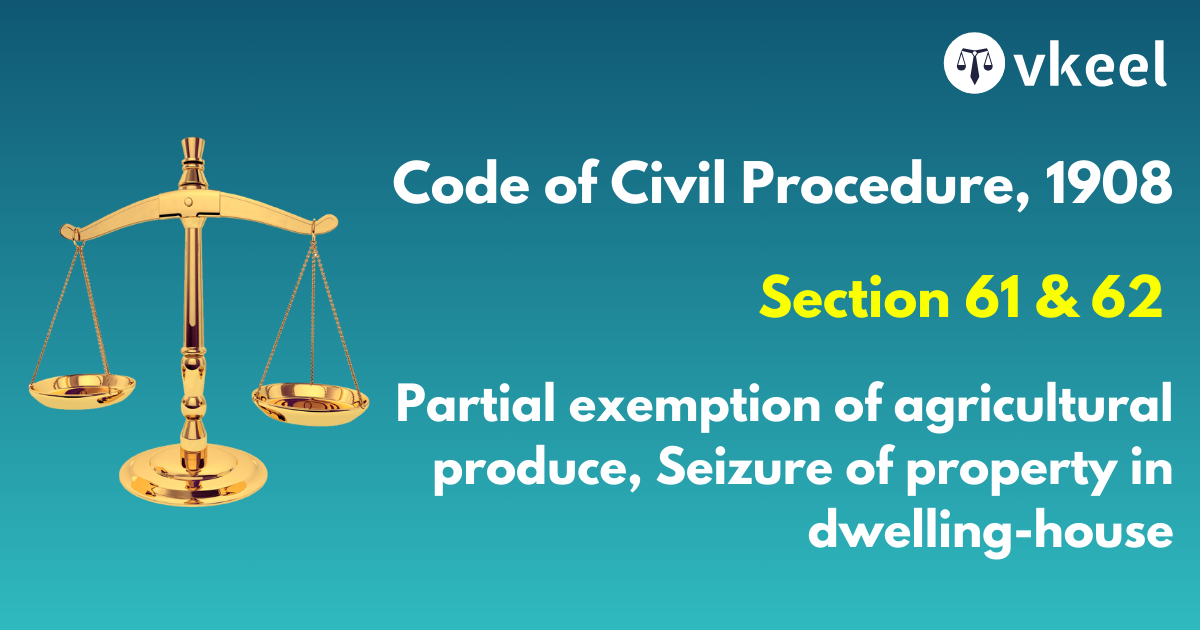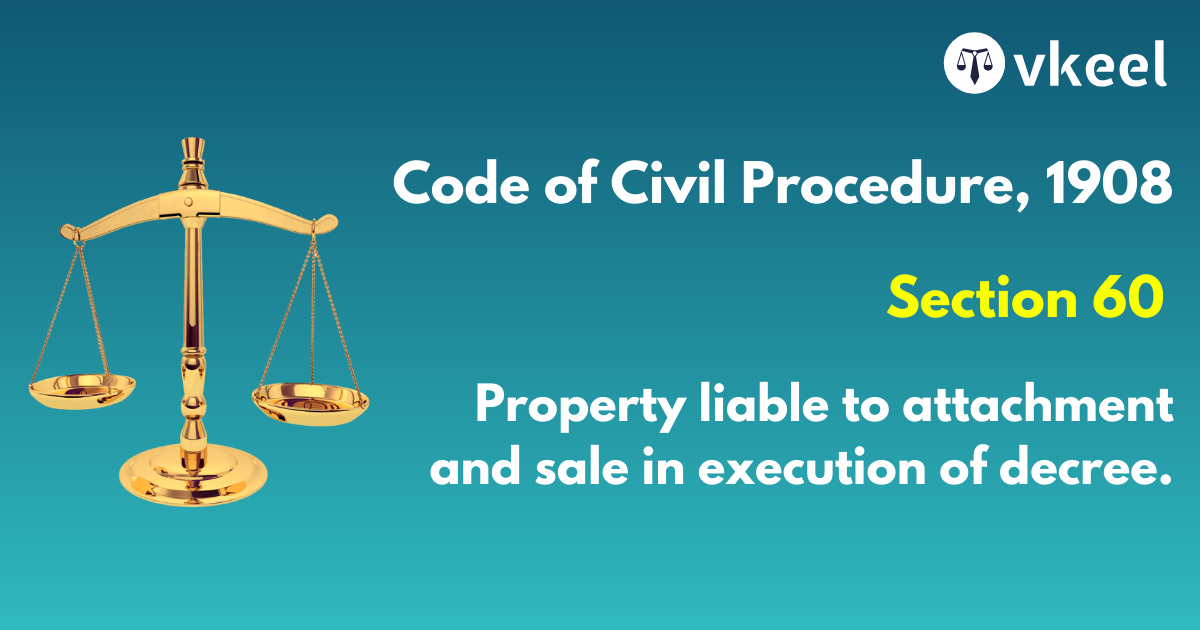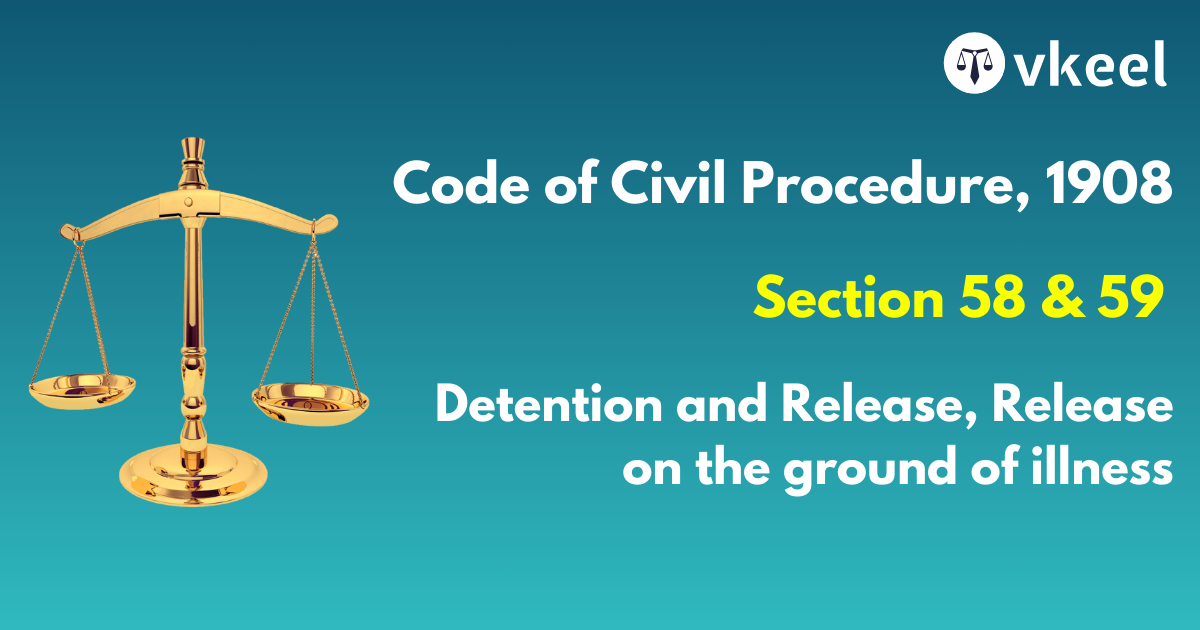Section 19 Code of Civil Procedure,1908 – Suits for compensation for wrongs to person or movable
By Joy Puri
Table of Contents
Introduction
The provision of the Code of Civil Procedure ordains that if the suit is for a respective compensation and the compensation arises due to the person or to any moveable property thereof, and in furtherance if the wrong has been committed within the local limits of one court and the defendant thereby resides or carries business or works for gain within the local limits of jurisdiction of another the suit is instituted at the option of the plaintiff in either of the said court.
Section 19 of the Code of the Civil Procedure, 1908
19. Suits for compensation for wrongs to person or movable—
Where a suit is for compensation for wrong done to the person or to movable property, if the wrong was done within the local limits of the jurisdiction of one Court and the defendant resides, or carries on business, or personally works for gain, within the local limits of the jurisdiction of another Court, the suit may be instituted at the option of the plaintiff in either of the said Courts.
Landmark Judgements
Haveli v Painda
This section applies to suits for wrong done to the person or the movable property of the claimant, while section 16 (e) is applicable to torts affecting immovable property. Suits relating to injunction, patent rights &c are outside the scope of the section. Under section 19 the suit can be instituted at the place where the wrong was done or at the place where the defendant resides or carries on business.
Gokaldas v Baldevdas, 1961
It is only an extension of section 20. Section 19 elucidates that the place where the wrong is done to the person or movable property is the place where cause of action arises within section 20(c).
Sreepathi Hosiery Mills Private Limited v. Chitra Knitting Company
Section 19 is a specific section. It says that, where a suit for compensation for wrong done to person is laid, it should be filed at the place where the wrong is done or at the place where the author of the wrong resides or works for gain. There being no other choice available to the litigant who wishes to seek such compensation, he cannot whittle down the express prescription in Section 19 of the Code of Civil Procedure, and lay emphasis on the oral evidence casually let in by him so as to create or vest jurisdiction in the Court, which has none.
State of Meghalaya v. Jyotsna Das
The difference between Section 16 (e) and Section 19 is that former is applicable to civil wrongs affecting immovable property while the latter deals with wrongs to person or movable property. The words ‘wrong done’ in the section also includes wrong noticed.
State of U. P. v. Raja Ram
The word ‘resides’ used in the section does not cover the Government of India or Government of any State. It refers to natural persons only. Therefore, where Plaintiff had never been posted at a place, he cannot sue the Government at that place for his arrears of salary and in such cases he has no option but to sue at a place where wrong has been done to him, i.e. where the cause of action has arisen.
Subhash Chandra Jain v. Vidyut Jain
Section 19 applies to a suit where wrong to movable property has been done in the sense that it has in some way been changed so that its value diminished and the Plaintiff claims compensation for that damage.
The State of Maharashtra v. Sarvodaya Industries
Provisions of Section 19 are specific in subject and clear in its operation. Firstly, it governs a suit seeking restitutive reliefs of compensation on the basis of wrong done to the person or to movable property. Secondly, it offers and furnishes option or choice if the conditions indicated by the qualifying clause are satisfied in that wrong complained of was done within the local limit of one Court while the Defendant in fact resides or carries on business within the local limits of jurisdiction of another Court. Unless both these conditions together are available no question of option or choice for forum can conceivably, arise. The conjunction “and” in the qualifying clause is very much indicative of this result, leaving aside the cases where these conditions together are not available, the matters, of such suit are still governed by other provisions of the Code. It is noticeable that in the body of Section 19 the phrase “the cause of action, wholly or in part has not been used and it only finds place in Section 20 of the Code. In a suit for compensation “wrong done” “or” “complained of” is the cause of action by which Code understands and contemplates all the bundle of necessary facts capable on proof of sustaining the relief claimed. Compensation clearly posits an injury resulting in loss and damage. Mere injury or wrong without anything more would not suffice to sustain the claim for compensation. It is clear that the phrase “wrong done” is not used in any narrow sense but has to be understood in all its amplitude so as to afford forum and necessary relief. Thus, the phraseology used by Section 19 about “the wrong done would clearly take in not only the initial action complained on but its result and effect.
Conclusion
The aforementioned section of the Code of Civil Procedure thereby by providing the ground for reasonability about the cause of the action to the respective suit.
The provision rather than upholding the static reasonability, promotes the accessibility to reason, and thereby building its fundamental pillar of practicality in the legal domain.
Disclaimer:
The information provided in the article is for general informational purposes only, and is not intended to constitute legal advice or to be relied upon as a substitute for legal advice. Furthermore, any information contained in the article is not guaranteed to be current, complete or accurate. If you require legal advice or representation, you should contact an attorney or law firm directly. We are not responsible for any damages resulting from any reliance on the content of this website.

